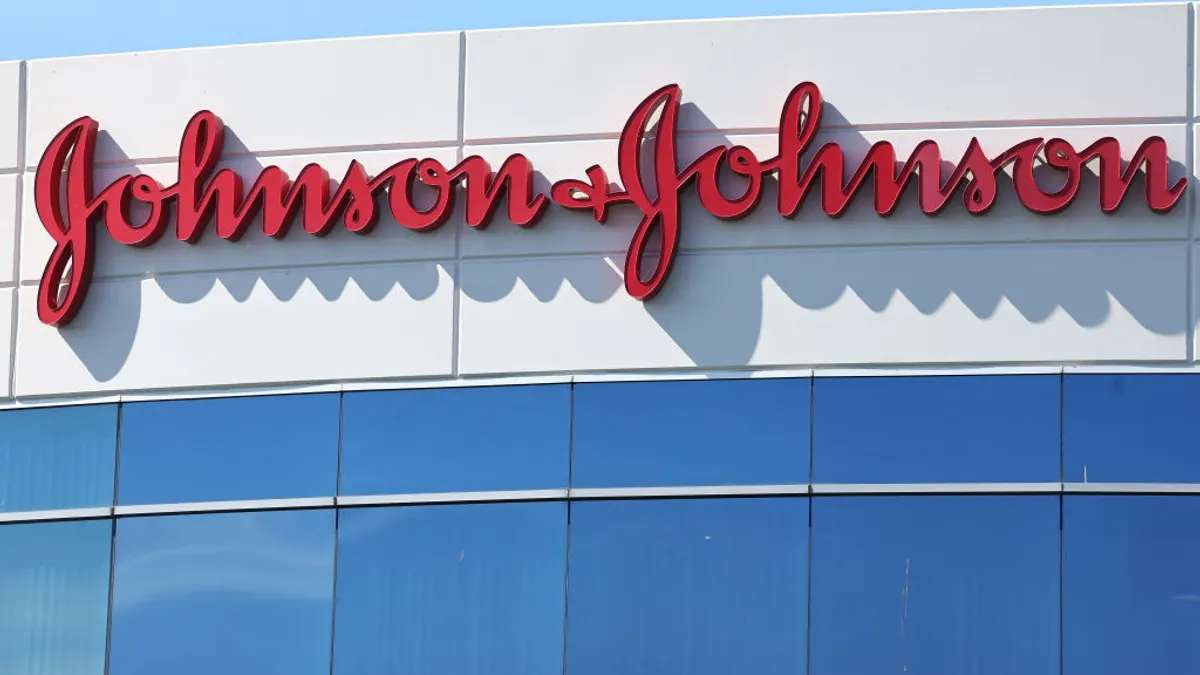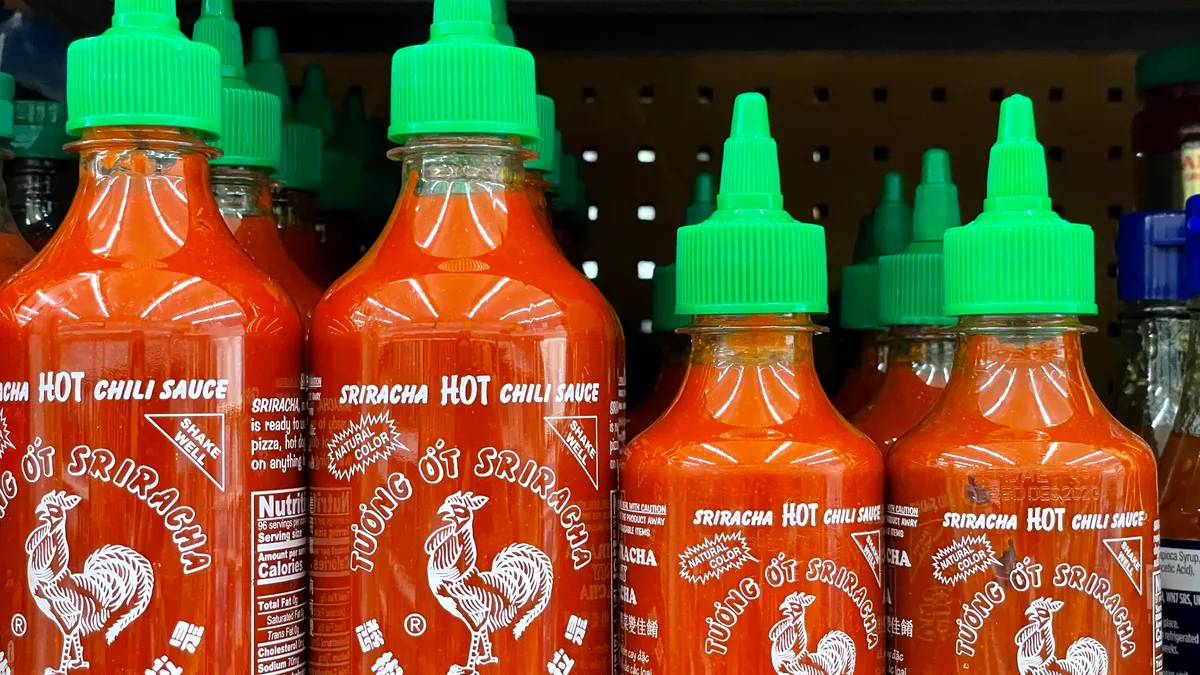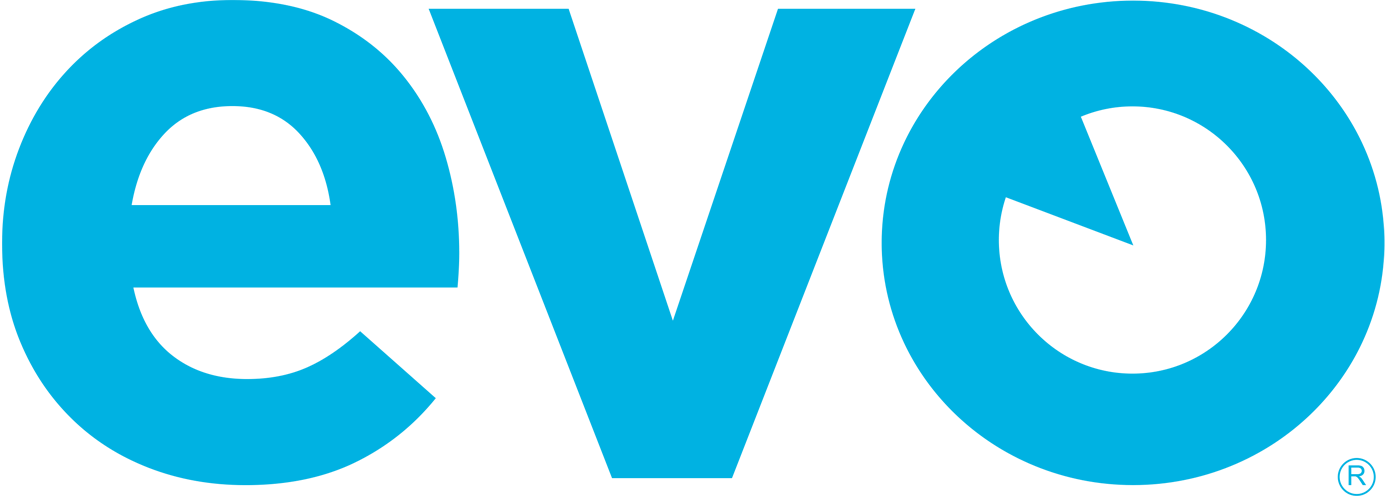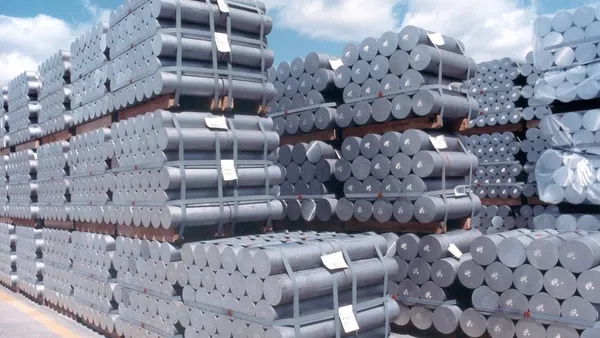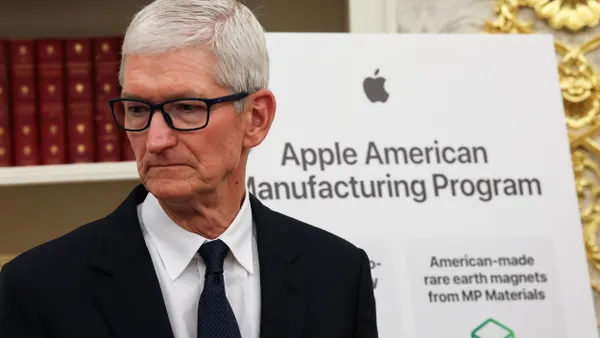Dive Brief:
- Johnson & Johnson is investing $2 billion in a biologics manufacturing facility in Wilson, North Carolina, the drugmaker announced Tuesday.
- The plant will support Johnson & Johnson's existing drug portfolio, as well as support the company's plan to launch 70 therapy and product expansions by 2030. Drug production will cover areas such as oncology, immunology and neuroscience.
- Construction is slated to begin in the first half of next year. When fully operational, the facility will create 420 full-time jobs.
Dive Insight:
Johnson & Johnson is committing major resources to its drug development and production strategy. The company invested $3.4 billion, or 15.3% of its sales revenue, to R&D efforts in Q2, VP of Investor Relations Jessica Moore said on a July earnings call.
North Carolina continues to be a national draw for drug manufacturing. The state is home to roughly 108 pharmaceutical manufacturing sites and more than 32,000 employees related to the sector.
As part of its project, Johnson & Johnson will receive $13.7 million over 12 years in tax incentives, as well as a $1.5 million performance-based grant, according to an announcement from the state. Wilson County, North Carolina, also approved nearly $50 million in incentives for the company.
"We are investing in capacity and new technologies to enhance our industry leading capabilities and ensure a resilient supply chain for the future," Dapo Ajayi, VP of supply chain at Johnson & Johnson Innovative Medicine, said in a statement. "North Carolina is an important hub for biopharmaceutical manufacturing and talent, and we are pleased to join this thriving life sciences ecosystem."
Johnson & Johnson's announcement is one of the biggest in the state's drug manufacturing sector this year, behind Novo Nordisk's plan unveiled in June to build a $4.1 billion weight loss drug factory in Wilson, North Carolina.
The biologics sector in particular is investing in the state. In June, Japan-based pharmaceutical company Kyowa Kirin announced plans to invest $530 million in a biologic therapies manufacturing plant in the state's Research Triangle Park region, one of the state's key hubs for drug development and production.



